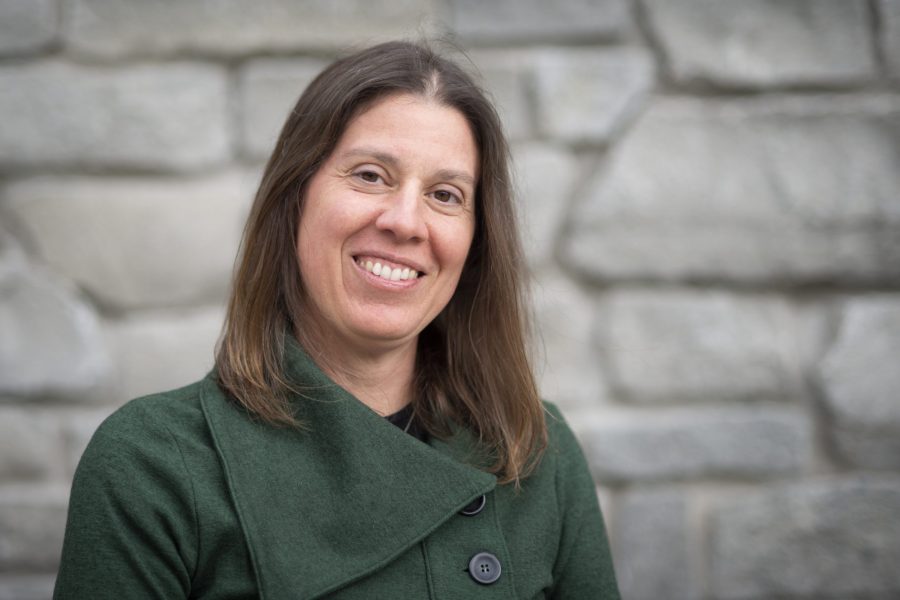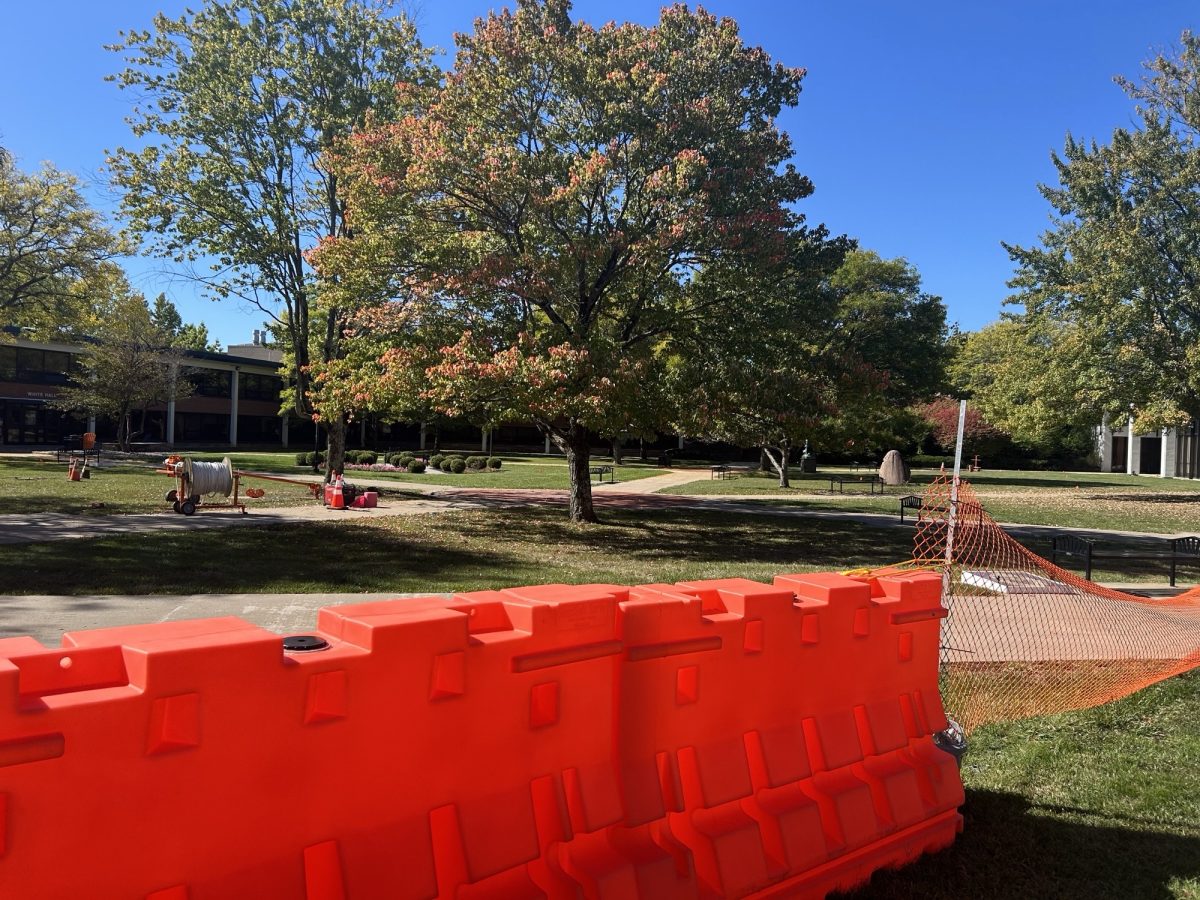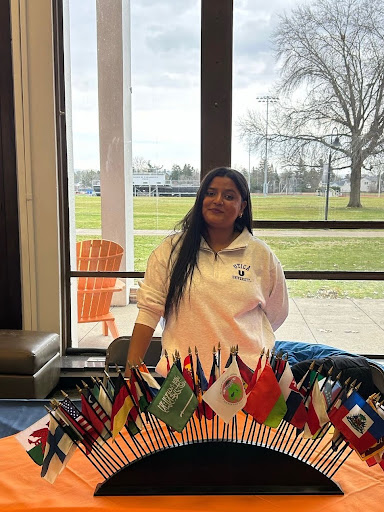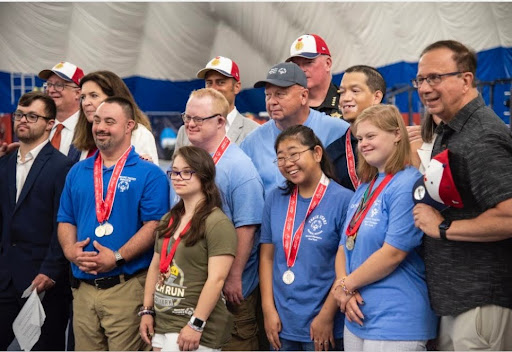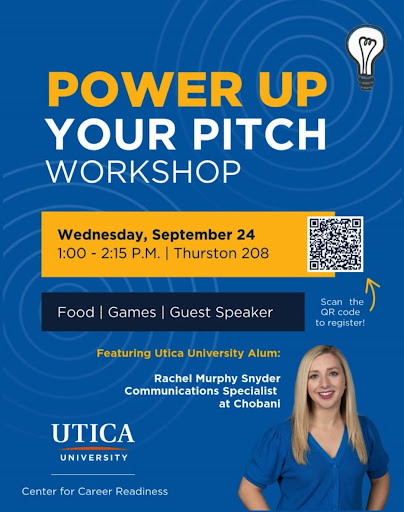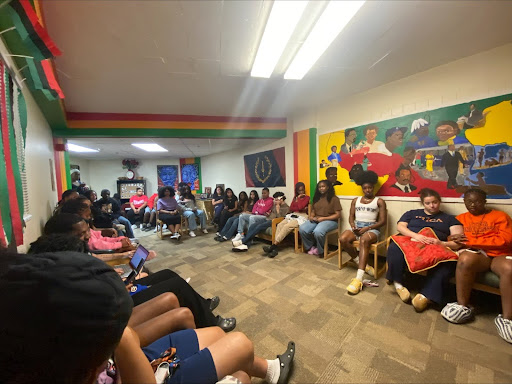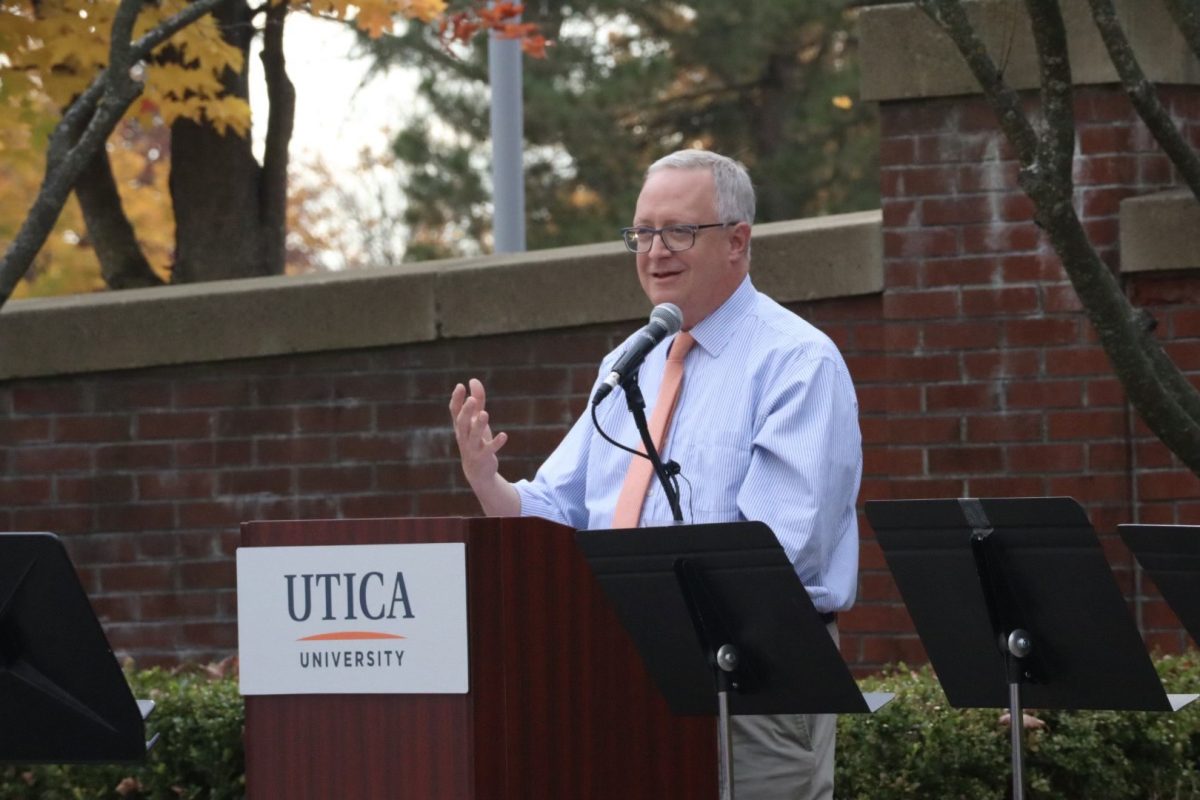Professor of Biology Dr. Sara Scanga is the 2021 recipient of the Harold T. Clark Jr. Award. This accomplishment recognizes Scanga’s productivity in research and continued productivity in the future.
Scanga came to Utica College in 2010, and since then has had peer-reviewed journals publish 11 of her papers and has worked with nearly 50 students on research in and out of the classroom.
Scanga’s colleague Dr. Jessica Thomas joined the biology department in 2012 and helped write the five-page letter for Scanga’s nomination. He has helped with a variety of projects such as developed a Biology curriculum and assessment procedure, as well as helped with multiple collaborative research endeavors.
“Over the past 8 years, I have worked closely with Dr. Scanga in multiple capacities,” Thomas said. “Throughout just about every professional endeavor and interaction I have had with Sara, research is a central thread in her bright vision. It is the backbone that guides her as an effective educator and a leader in her field.”
- ‘Just come try it’: Women’s Wrestling Team looking for new members
- Slashed SGA budget sparks student frustration at recent meeting
- Editorial: Your campus, your voice – How to reach us when you want to speak out and how we make editorial decisions
- Op-Ed: Why Black student perspectives matter in campus reporting
- Conservative activist Charlie Kirk’s death shocks Utica University students
Provost Todd Pfannenstiel met with both Scanga and Thomas to announce that Scanga was the recipient of the Harold T. Clark Jr. Award.
“When he shared the news, I held back tears because I was so happy for her and the recognition that she deserves,” Thomas said.
Scanga reflected on the moment she found out Thomas nominated her for the award.
“I felt, honestly, just touched and grateful,” Scanga said. She and Thomas have been kindred spirits since they became colleagues in 2012. “She’s a great collaborator,” Scanga reiterated about Thomas.
A Serendipitous Opportunity Continues to be A Path of Gratitude
When Scanga joined Utica college in 2010, she said she felt as if it was this serendipitous thing she capitalized on. After graduate school, Scanga was living in Syracuse and applied to her current position as a professor of biology.
“Oh my gosh, they teach how I want to teach,” Scanga said. “How lucky is this?”
Eleven years later, Scanga continues to feel the gratitude between being the recipient of the Harold T. Clark Jr. award and watching the biology department and its students accomplish amazing things.
Scanga’s Teaching Philosophy
The mission of the biology department aligns with Scanga’s teaching philosophy which is to learn by doing.
“I want (the students) to be engaged and hands-on with science,” Scanga said. “A big part of it is bringing research into the classroom, because I am training people to be scientists, and if they’re not going to end up doing research for a career, that’s fine because having a scientific mindset is good for everyone.”
The advice that Scanga has for biology students is to get involved with research their first semester.
“It’s the fun part, so why put it off?” Scanga said.
According to Scanga, the research around student retention shows that students are more likely to stay in school when they feel like they have a home.
“What better way to find a home than interacting with your professors outside of class, doing cool research that’s fun and doing stuff that you came to school for?” Scanga said.
Experiencing all the scientific research that you can while in school is encouraged among professors.
“Dabble in this and that until you find out what you like,” Scanga added.
Biology Students Go Above and Beyond
A proud moment Scanga felt was when her students designed a research project that ended up being published in the journal Plos One. The research was conducted by the students with mentorship from Scanga.
The project was based on the question, “How does artificial sweetener affect plants?” The students went to scientific literature, conducted research and found out that the artificial sweetener does kill some plants.
“They took it to the next level,” Scanga said.
UC student Anastasia Shikula explained her experience with Scanga.
“Dr. Scanga is a very great person,” Shikula said. “She is actually my advisor. When I told her I was having a hard time finding a job on campus my freshman year, she offered me to work in her greenhouse. Then, as my advisor and supervisor, she also offered me to do research with her. She is my advisor, supervisor, research mentor and Botany teacher. And a great support. All in one.”
Scanga’s Hope for Biology’s Future
Scanga’s hopes for biology’s future is that it becomes more inclusive.
“Instead of just saying lip service, that we care about diversity, my hope is that we actually get a diverse set of people at the table and start seeing all the amazing ideas that can come when you have a different background from the dominant background in science right now,” Scanga said.
She believes that society will benefit as a whole from including a diverse range of voices in the scientific community.
Scanga expressed her frustration on the slow turn toward inclusivity and the discoveries we’re missing out on due to discriminatory actions.
“No more waiting (for inclusivity), let’s get this done,” Scanga said.
For more information on Scanga and her work visit:
- https://www.utica.edu/campus-community/utica-stories/sweet-science – A link to Scanga’s student conducted research.
- https://journals.plos.org/plosone/article?id=10.1371/journal.pone.0192749 – A link to the publication.
- http://www.sarascanga.com/ – Scanga’s website.




































































































































